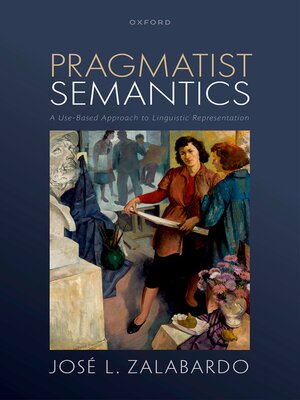
Sign up to save your library
With an OverDrive account, you can save your favorite libraries for at-a-glance information about availability. Find out more about OverDrive accounts.
Find this title in Libby, the library reading app by OverDrive.



Search for a digital library with this title
Title found at these libraries:
| Library Name | Distance |
|---|---|
| Loading... |
José L. Zalabardo defends a pragmatist account of what grounds the meaning of central semantic discourses—ascriptions of truth, of propositional attitudes, and of meanings. He argues that it is the procedures that regulate acceptance and rejection that give the sentences of these discourses their meanings, and explores the application of the pragmatist template to ethical discourse. The pragmatist approach is presented as an alternative to representationalist accounts of the meaning grounds of declarative sentences, according to which a sentence has the meaning it has as a result of links with the bits of the world that it purports to represent. Zalabardo develops a version of the open-question argument to support the claim that the meaning grounds of the discourses he focuses on cannot receive representationalist accounts. It is generally assumed that a declarative sentence cannot perform the function of representing the world unless it has a representationalist meaning ground. Zalabardo rejects this assumption, arguing that sentences with pragmatist meaning grounds can represent the world in exactly the same sense that sentences with representationalist meaning grounds do. This requires that there are states of affairs that the target sentences represent as obtaining, and Zalabardo develops an account of the nature of the states of affairs that can play this role for sentences with pragmatist meaning grounds. Pragmatist Semantics concludes by developing the suggestion that the meaning grounds of all our representational discourses might be ultimately pragmatist.







